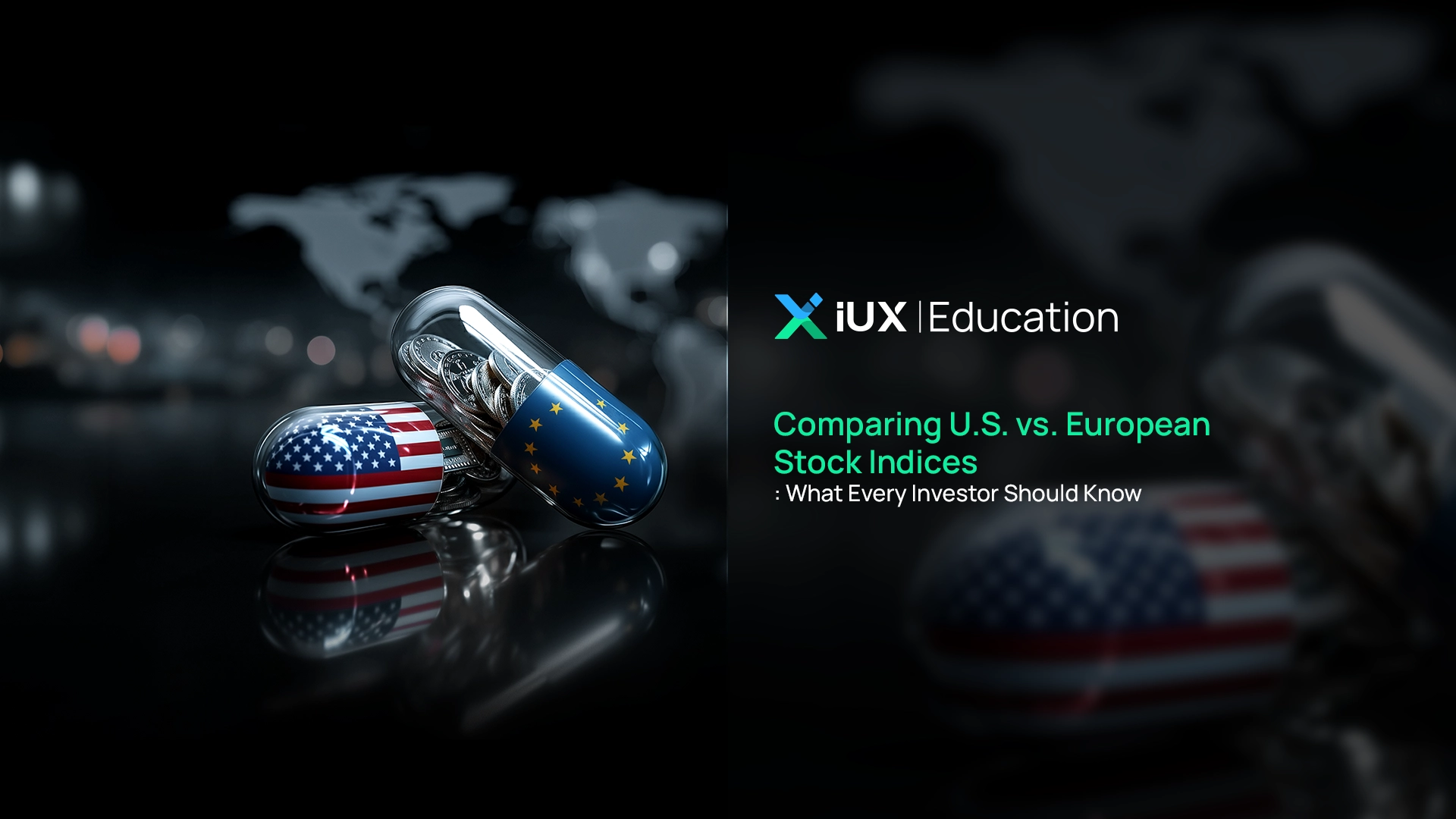CFDs are complex instruments and come with a high risk of losing money rapidly due to leverage. 76% of retail investor accounts lose money when trading CFDs with this provider. You should consider whether you understand how CFDs work and whether you can afford to take the high risk of losing your money.
CFDs are complex instruments and come with a high risk of losing money rapidly due to leverage. 76% of retail investor accounts lose money when trading CFDs with this provider. You should consider whether you understand how CFDs work and whether you can afford to take the high risk of losing your money.

Germany and France: The Shaking Pillars of the European Union
Germany and France, once seen as the economic and financial anchors of the European Union, are now facing mounting challenges—from soaring public debt and an industrial slowdown to a weakening euro and growing political uncertainty that has shaken investor sentiment across the region.
France’s debt has reached 112% of GDP, well above the eurozone average, while Germany has fallen into a technical recession for multiple consecutive quarters. Both nations are still grappling with the ripple effects of the Russia–Ukraine war, which has driven energy prices higher, putting further strain on their industrial sectors and production costs.
Slowing Economy Weighs on Industry and Drains Momentum from Capital Markets

Ford employees at the company’s Cologne plant on December 10, ahead of a visit by the German Chancellor
Photo: Sascha Schuermann/AFP/Getty Images
On the industrial front, Germany is facing a crisis in its automotive sector, pressured by fierce competition from Chinese electric vehicles, which are entering the market with lower costs. Meanwhile, France continues to experience social unrest stemming from prolonged protests against pension reform—a conflict that has persisted for over a year and clearly dented investor confidence in the country’s capital markets.
Global investors are watching closely. If these two economic powerhouses fail to revive growth and rein in public debt, the ripple effects could weigh heavily on the euro, undermine financial stability across Europe, and shift global investment sentiment.
European Stocks Under Pressure as Investors Shift Toward Gold and Currencies
The cautious mood across European equity markets reflects growing concerns over weakening economic data. Major indexes like Germany’s DAX and France’s CAC 40 remain under pressure, while institutional investors are gradually reallocating from cyclical stocks toward safer assets such as gold and fixed-income securities.
Gold prices have seen a notable surge in the first half of 2025, at times crossing above $3,400 per ounce, according to data from goldprice.org. This rally highlights increased demand from investors seeking to hedge against global uncertainties—including Europe’s economic slowdown, euro volatility, and fiscal instability in major Eurozone economies. As a result, gold is once again gaining traction through investment vehicles like ETFs (e.g., $GLD) and CFD trading platforms.
In the Forex market, fluctuations in the euro (EUR) and the British pound (GBP) are creating opportunities for short-term traders—especially in pairs like EUR/USD and EUR/JPY. Movements in these pairs continue to respond to statements from the European Central Bank (ECB), which remains committed to a tight monetary policy to combat persistently high inflation.
Looking to invest or trade in today’s volatile markets?
Whether it's gold, currencies, or European indices, explore opportunities with IUX — a single platform that gives you access to CFDs, Forex, indices, and ETFs all in one place.
Start with a free demo account or begin trading live with IUX today.
Germany and France’s Industrial Slowdown Weighs on Stocks and Investor Sentiment

Germany's powerful labor unions have led walkouts in response to Volkswagen’s cost-cutting plans, which threaten thousands of jobs and could lead to the closure of multiple plants.
Photo: JENS SCHLUETER/AFP via Getty Images
One of the main pressures facing Germany and France in 2025 is the slowdown in their industrial sectors. Germany’s automotive industry, in particular, is facing intense competition from Chinese EV makers offering more advanced technology at lower costs. Volkswagen’s plan to shut down factories and lay off more than 10,000 employees this year highlights deep pressure throughout the supply chain.
Meanwhile, energy prices have surged due to the ongoing Russia–Ukraine crisis, pushing production costs up by over 30% across several industries. As a result, European manufacturers are losing global competitiveness and have begun scaling back or halting production lines.
These developments have triggered continued sell-offs in European stock markets. Industrial and energy stocks in the DAX and CAC 40 have weakened, prompting investors to rotate away from cyclical stocks toward safe-haven assets like gold. At the same time, traders are focusing on Forex opportunities—particularly EUR/USD and EUR/JPY pairs—where price swings are driven by economic news and ECB policy meetings.
 |
Tip: Follow ECB statements closely as they significantly impact EUR/USD movements. Trade with the trend and always set a Stop Loss. |
Political Uncertainty Adds Pressure to Germany–France Economies and Investment Climate

Image credit: EMMANUEL DUNAND/AFP via Getty Images
Beyond the economic slowdown from soaring energy costs and industrial contraction, Germany and France are also facing mounting political instability—further eroding investor confidence.
In France, protests against President Macron’s pension reform—which raised the retirement age to 64—have persisted, causing widespread disruptions. These include transportation strikes, temporary business closures, and a notable slowdown in foreign investment. As a result, the CAC 40 index has become increasingly volatile, prompting some institutional investors to reduce their exposure.
In Germany, the government has been criticized for its slow response to energy challenges and intensifying competition from China. This has led to continued pressure on the DAX index, particularly in industrial and energy stocks. Some investors have shifted to gold and short-term bonds to hedge against risk, while others are turning to Forex trading—especially EUR/USD—to capitalize on political developments and ECB meetings that influence the euro.
Germany–France Slowdown Risks Global Spillover: What Investors Should Watch Closely
If Europe’s two largest economies fail to contain their domestic economic and political crises in time, the ripple effects could extend far beyond the region—impacting global equity markets, currencies, and trade flows.
-
Euro Under Selling Pressure
The euro may continue weakening amid persistent uncertainty, driving volatility in the EUR/USD pair. This scenario creates opportunities for traders using short-term news-based or technical strategies.
-
European Stocks See Outflows, Defensive Plays Shine
Declining investor confidence could trigger capital outflows from Europe into more stable assets—particularly U.S. defensive sectors like Healthcare and Utilities, or ETFs such as $VOO and $IBB. Gold ($GLD) may also benefit as a classic safe-haven asset.
-
Opportunities in Forex and Commodities
Europe’s economic slowdown could dampen demand for oil and energy exports to the region. Traders in WTI or Brent should closely monitor shifts in European consumption. Meanwhile, euro weakness may strengthen the U.S. dollar, affecting gold positions and major currency pairs across the Forex market.
Overview of the German–French Economic Slowdown and Its Impact on Global Financial Markets
In 2025, Germany and France—Europe’s economic powerhouses—are under mounting pressure. Industrial slowdowns, rising public debt, persistently high energy prices, and growing political uncertainty have all shaken investor confidence and weighed heavily on key indices like the DAX and CAC 40.
In the capital markets, many investors are rotating out of cyclical stocks and moving into safer assets such as gold, ETFs, bonds, and U.S. defensive stocks. Meanwhile, the Forex market has seen heightened volatility, particularly in EUR/USD and EUR/JPY pairs, which respond swiftly to European economic data and statements from the European Central Bank (ECB).
The slowdown in these two core European economies could spill over into broader global consequences—impacting energy demand, global trade, and the direction of international capital flows. As a result, 2025 is shaping up to be another volatile year that global investors must watch closely.
Looking to seize opportunities in a volatile market?
Get started with IUX—a platform that gives you access to diversified assets including CFDs, Forex, indices, and ETFs. Try a free demo account or start live trading today with confidence.
💡Frequently Asked Questions (FAQ)
Q: How does the economic slowdown in Germany and France affect investments?
A: The European stock market has come under pressure, prompting investors to reduce exposure to cyclical stocks and shift towards safe-haven assets such as gold, ETFs, bonds, or U.S. defensive stocks. This rotation helps mitigate risks from rising economic and political uncertainty in the Eurozone.
Q: Which currency pairs should traders watch amid Euro volatility?
A: EUR/USD and EUR/JPY are highly active during periods of Eurozone instability. Traders can use a news-driven strategy by following ECB announcements, or apply technical analysis to capture short-term price movements.
Q: What tools are useful for investing or trading in volatile markets?
A: Instruments like CFDs allow flexible trading in gold, indices, or forex pairs. Risk can be managed through tools such as Stop Loss or Hedging. Platforms like IUX support both beginner and professional traders with comprehensive access to global markets—all in one place.
Note: This article is intended for preliminary educational purposes only and is not intended to provide investment guidance. Investors should conduct further research before making investment decisions.
Source 1



